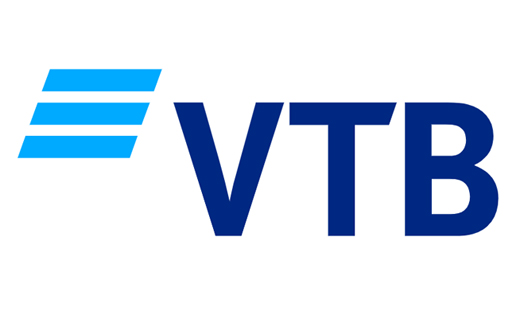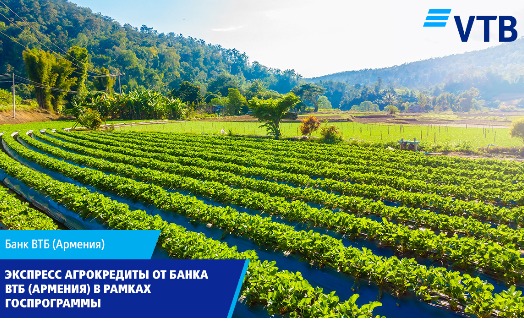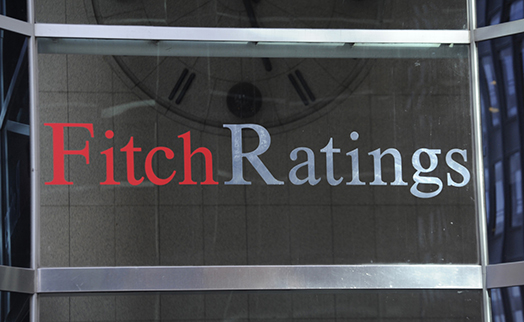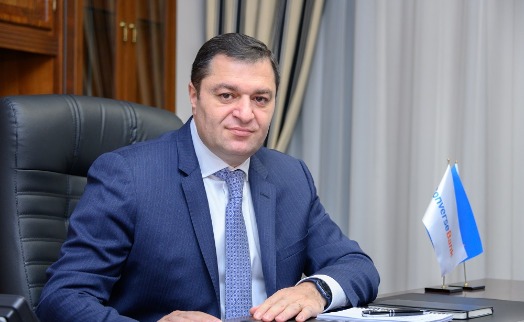16.01.2012 19:35

Exclusive Interview of Alyona Stratan, Director of Banking Risks Division of Bank VTB (Armenia), with ARKA News Agency
ARKA – How effective is the automated system Bank VTB (Armenia) introduced in February 2011 for making credit decisions?
Stratan – The automated decision-making system, so-called lending factory launched by Bank VTB Armenia about one year ago, produces unique results. For example, once only participants of the payroll card program could get the bank’s credit card – their wages were regularly transferred to their card accounts in the bank, but in May 2011 we started providing credit cards also to “clients from the street”, i.e. those people had no deals with Bank VTB (Armenia) before that.
On one hand, provision of plastic cards and other retail products included in the lending factory is intensively growing, and on the other hand, they are completely controllable in terms of quality of portfolio.
Speaking of effectiveness, we have significantly contracted terms of consideration of applications. Now they range from 20 minutes to three days, depending on products.
Quick launch of any product is one of the system’s top priorities, though we see reserves here and are working for greater optimization of time.
Now we are considering room for purchasing additional IT support for a quick installation of necessary parameters, implied by our decision-making strategy, without changing the system. And this supports the lending factory now. But this is a matter of 2012.
ARKA – Do all applications for retail loans necessarily go through the lending factory, or the old decentralized consideration of applications is applied as well?
Stratan – Bank VTB (Armenia) stopped applying the decentralized system of consideration and approval of credit applications yet in October 2009. We applied the centralized system for about a year and a half, but in a manual mode. In February 2011, we started introducing the automated decision-making system stage by stage, or more precisely product by product. Now about 99% of applications go through the automatic standard approval procedure. The remaining applications (about 1%) are not standard deals, VIP clients’ applications, etc.
ARKA – As we know, Bank VTB (Armenia) entered POS lending market in 2011. What do you think, isn’t this product too risky?
Stratan – Of course, especially given that approval of a POS loan takes only 20 minutes. However, the bank is steadfast in its determination to win this market. Maybe we will have to reduce our checkups, but I think automation degree, the large base of borrowers in our bank and usage of progressive analysis instruments will enable us to detect and localize small problems before they grow.
ARKA – They say applications for loans for small businesses will start going through the lending factory soon. Is this true?
Stratan – Yes, it’s true. More than that – an appropriate project is at a pilot stage now, and we will apply it to the entire system soon.
ARKA – How much the requirement to small and medium-size businessmen borrowers to secure their loans was tightened in 2011?
Stratan – I wouldn’t say that we tightened requirements to borrowers in terms of their solvency. We rather improved our approach to solvency – we standardized our approaches to make it possible to consider them in automated mode and we also identified solvency and insolvency criteria and determined our approaches to assessment of limit in lending a client, depending on kind of his activity.
Loan security needs a harder work. In 2011, Bank VTB (Armenia) restricted some kinds of loan security – requirements to insurance of some types of collaterals were standardized, some discounts applied in calculating the actual limit of lending were tightened and discounts were made dependent on property ownership adequacy.
ARKA – What are your outlooks for quality of the portfolio of lending to small and mid-scale businesses?
Stratan – I wouldn’t like to forecast something, but I can say that the small business portfolio in VTB Bank reflects a healthy dynamics in terms of quality.
The rate of problematic loans in our portfolio fluctuated around 2% throughout the year. However, small businesses “are growing” in Armenia, and this makes risks in this sector higher. Besides, the number of good clients is not so large here, and they migrate from bank to bank seeking better terms as banks have to come to terms with high risks.
ARKA – In what assets your bank sees potential? What assets are most attractive?
Stratan – In accordance with our credit policy, we work in all directions – we provide either retail or corporate lending to all the segments of market.
Retail lending made up 48% of our portfolio on January 1, 2012. Lending to corporate businesses occupies about a half of our portfolio.
A different matter is that in retail business the bank itself set high priorities in all directions. The country is recovering after economic shocks quite slowly, and lending is that very instrument which speeds up the recovery. The more money works, the faster consumption grows. As a result, industrial output grows and living standards improve. -0-
Read the news first and discuss them in our Telegram
Tags:






























